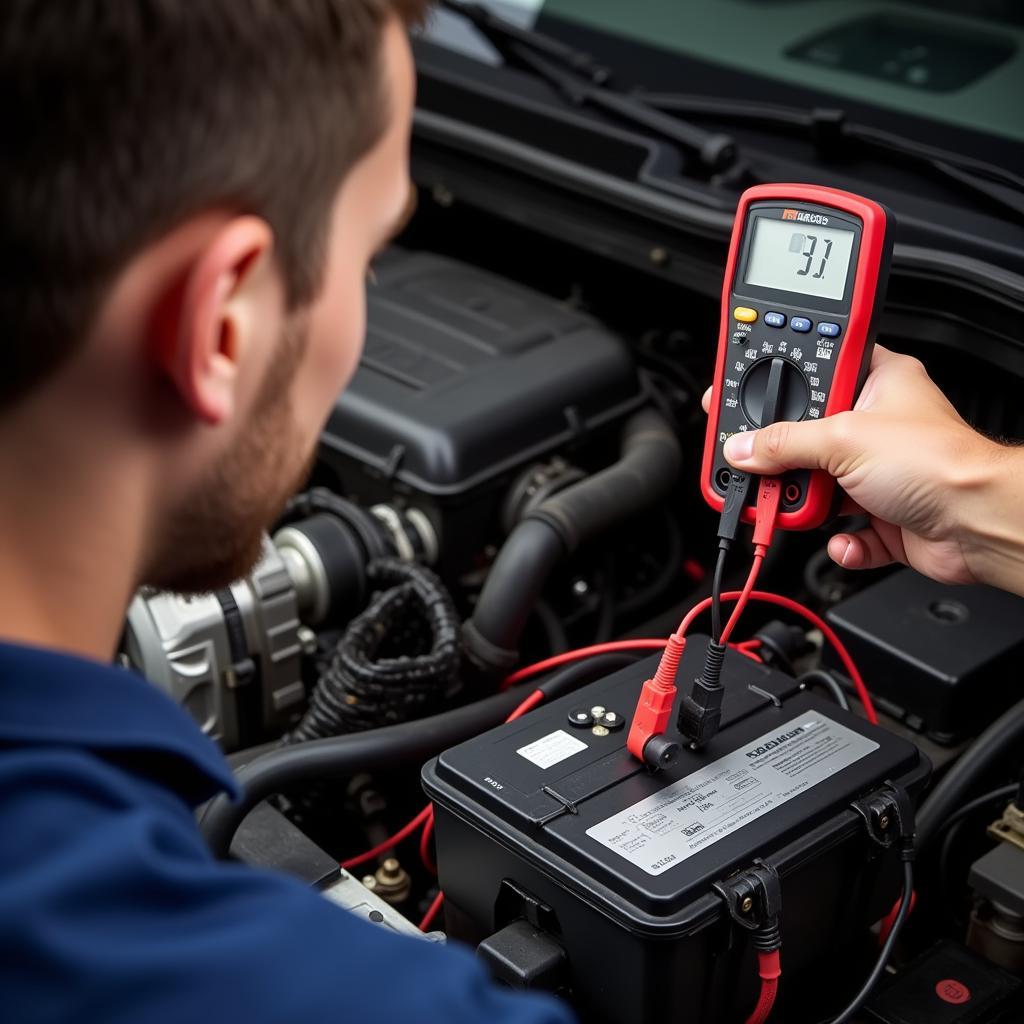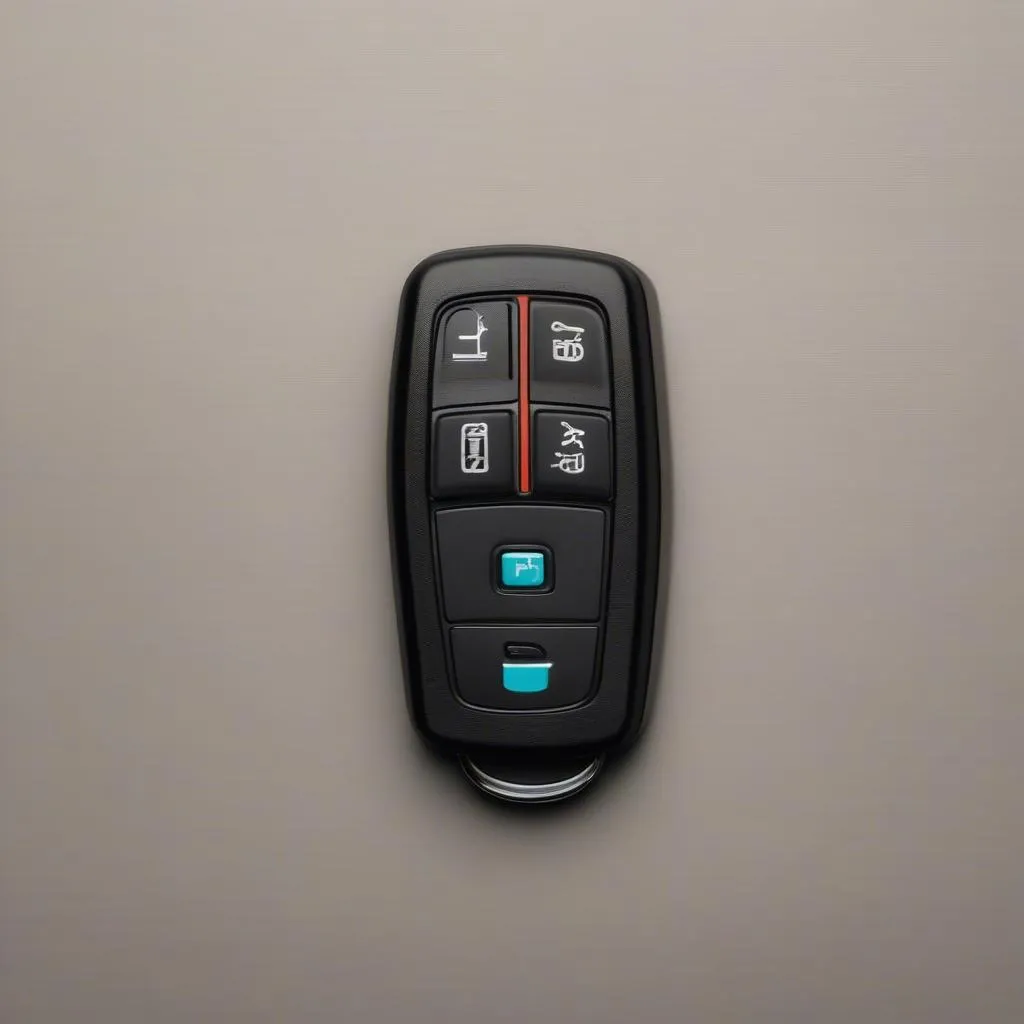My car keeps dying with a new battery, and it’s incredibly frustrating! This problem can leave you stranded and searching for answers. Don’t worry, you’re not alone. This comprehensive guide will help you diagnose the issue and get back on the road. We’ll cover everything from simple checks to more complex electrical problems, providing you with the knowledge you need to troubleshoot effectively.
Why is My Car Battery Dying Even Though It’s New?
A new battery dying repeatedly points to an underlying issue that needs immediate attention. It’s not normal for a new car battery to die, so addressing this promptly is crucial to avoid further damage and costly repairs. Several culprits can cause this, ranging from a parasitic drain to a faulty alternator. Let’s explore the most common reasons.
Parasitic Drain: The Silent Battery Killer
A parasitic drain occurs when an electrical component continues to draw power even after the car is turned off. This slow but constant drain can deplete even a brand new battery overnight. Common culprits include interior lights, faulty door switches, and aftermarket electronics.
- How to identify a parasitic drain: Use a multimeter to measure the current draw with the car off. A reading above 50 milliamps generally indicates a parasitic drain.
Alternator Issues: Not Charging Properly
The alternator is responsible for recharging the battery while the engine is running. A malfunctioning alternator won’t effectively charge the battery, leading to a dead battery even if it’s new.
- Signs of a bad alternator: Dim headlights, flickering dashboard lights, and a whining noise from the engine compartment.
Bad Battery Cables and Connections: A Simple Fix
Corroded or loose battery terminals can prevent the alternator from charging the battery properly. This is a simple but often overlooked cause of a dying battery.
- Checking your connections: Inspect the battery terminals for corrosion and ensure they are tightly connected.
Faulty Starter: Draining the Battery Quickly
While a faulty starter doesn’t directly cause a new battery to die, it can put excessive strain on the battery, leading to premature failure. If your car struggles to start, clicks repeatedly, or makes a grinding noise, the starter might be the culprit.
Troubleshooting Your Dying Car Battery: A Step-by-Step Guide
- Check the battery terminals: Inspect the terminals for corrosion. Clean them with a wire brush and baking soda solution if necessary. Ensure they are tightly connected.
- Test the battery: Use a multimeter to test the battery voltage. A fully charged battery should read around 12.6 volts.
- Test the alternator: With the engine running, the voltage should be around 14 volts. A lower reading suggests a faulty alternator.
- Check for parasitic drain: Use a multimeter to measure the current draw with the car off. A reading above 50 milliamps indicates a drain.
- Inspect the starter: Listen for unusual noises when starting the car. Clicks, grinding, or a whining sound may indicate a faulty starter.
 Testing a Car Alternator with a Multimeter
Testing a Car Alternator with a Multimeter
“A common mistake people make is assuming a new battery eliminates all electrical problems,” says automotive electrical expert, John Miller, ASE Certified Master Technician. “Always diagnose the underlying issue to avoid further battery problems.”
Preventing Future Battery Problems
Regular maintenance can prevent many battery-related issues. Consider the following:
- Regularly clean the battery terminals: This prevents corrosion and ensures a good connection.
- Have your alternator tested periodically: This helps identify potential issues before they cause a dead battery.
- Limit short trips: Short trips don’t allow the alternator enough time to fully recharge the battery.
- Turn off all accessories when the car is off: This prevents parasitic drain.
Conclusion: Don’t Let a Dying Battery Leave You Stranded
A new car battery that keeps dying isn’t normal. By following the troubleshooting steps outlined in this guide, you can pinpoint the underlying cause and get your car back on the road. Remember, regular maintenance and proactive diagnostics are key to preventing future battery problems. Don’t let a dying battery keep you from enjoying your car.
“Proactive maintenance can save you time, money, and frustration in the long run,” advises Susan Davis, Lead Electrical Systems Engineer. “Addressing potential issues early prevents them from escalating into major problems.”
FAQ
- How long should a new car battery last? A new car battery typically lasts 3 to 5 years.
- Can extreme temperatures affect battery life? Yes, both extreme heat and cold can shorten battery life.
- Can I jump-start a car with a completely dead battery? Yes, but it’s essential to follow proper jump-starting procedures.
- Is it safe to drive with a bad alternator? It’s not recommended to drive with a bad alternator as it can damage other electrical components.
- How can I prevent parasitic drain? Turn off all accessories when the car is off and have your electrical system checked for any faulty components.
- What are the signs of a bad starter? Clicking, grinding, or a whining noise when starting the car.
- Can a faulty alternator drain a new battery? Yes, a faulty alternator won’t charge the battery properly, leading to it dying even if it’s new.

